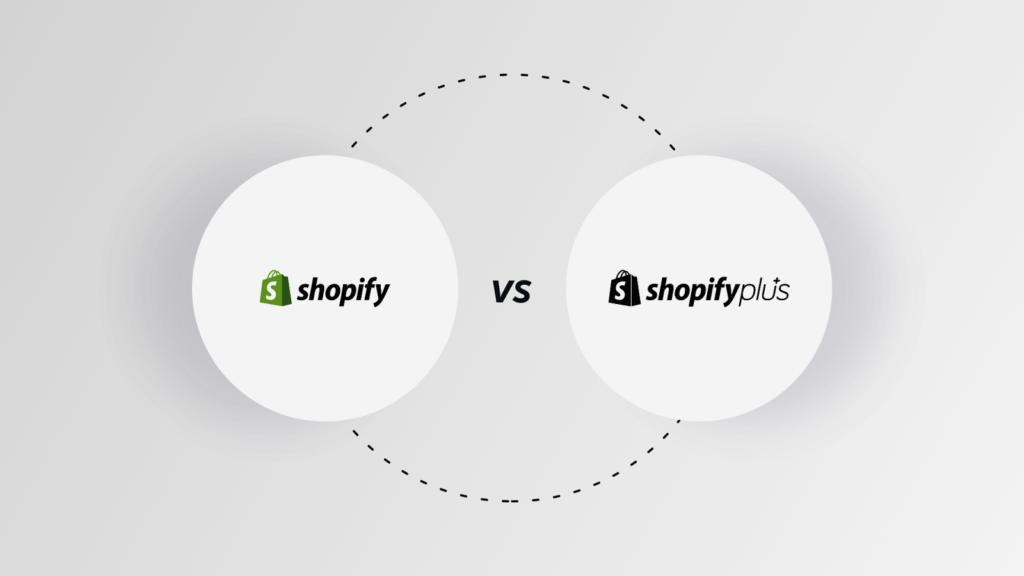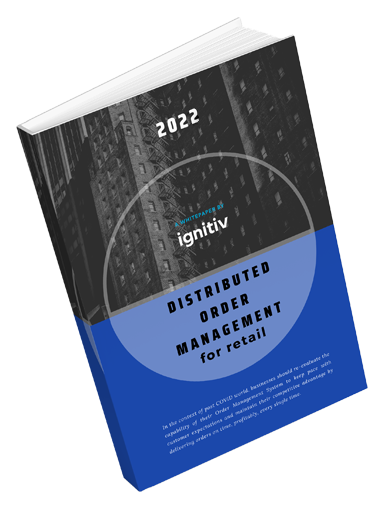Digital Commerce
Amidst the COVID-19 pandemic, the eCommerce market surged by almost 34%. And yet, according to Google, only 51% of retailers were prepared to deal with the retail landscape shifts that had taken place by the end of 2020 – with less than half (47%) having accelerated cloud adoption.
One key reason for the lag is that eCommerce decision-makers are not equipped with the knowledge of different options now available. And even when they are, the job of determining the platform best suited for their business needs, customer base, and strategic goals remains a task too big.
Considering that the cloud infrastructure:
- Helps enterprises quickly scale their online presence
- Offers secure and convenient online shopping experiences
- Prepares for traffic spikes which may occur when a new product launches on discount days or during the holiday shopping season
- Offers high performance and operational speed
- Delivers enhanced customer experiences
- Helps achieve higher ROI, revenues, and profits compared to on-premises infrastructure, etc.,
…it becomes essential to strategically adopt it for growth in the hyper-competitive eCommerce landscape.
But to achieve these benefits in the high-stakes eCommerce world, firms must be more aware of the many cloud eCommerce platforms now available and then make the right choice. For many eCommerce companies, this choice is easier said than done.
This article explores the three key types of cloud eCommerce platforms and what choices pertaining to these platforms could help an enterprise realize the best possible course of action.
If you’re an eCommerce company looking to unlock greater efficiency and transform customer experiences with the cloud – this article is for you.
Understanding Open Source
Open-source platforms are ideal for eCommerce firms who want full control over their environment. With such platforms, the hosting environment is offered and managed by the provider, and the firm has to take care of many other aspects, including compliance (e.g., PCI-DSS), security, and platform integrations such as:
- Customer Relationship Management (CRM)
- Enterprise Resource Planning (ERP)
- Content Management System (CMS)
- Analytics and BI
Maintaining these features entails the employment of development teams and IT support. As a result, smaller firms that lack such teams are better off choosing the alternatives (SaaS- or headless commerce-based platforms) instead.
Software-as-a-Service (SaaS)
SaaS-based eCommerce platforms reduce the complexity of running an online business. With SaaS, eCommerce firms don’t have to build or develop a custom solution. Instead, they can essentially “rent” the platform from SaaS providers, customize the built-in features, and set up the store to get to market faster.
The SaaS provider manages all product updates, security, hosting, compliance, etc., associated with running the eCommerce business, so the firm can focus on what really matters – driving sales and delivering enhanced customer experiences. Further, SaaS platforms provide APIs, non-proprietary coding, and staging environments for UX build-outs for additional flexibility and customizability for growing eCommerce companies.
Headless Commerce
In headless eCommerce platforms, the shopping cart is decoupled from the CMS. Such decoupling is enabled with the help of a Design Experience Platform (DXP) like Adobe Experience Manager or Bloomreach and a CMS like WordPress or Drupal for building pages and blogging.
Much like SaaS platforms, headless commerce platforms allow for faster go-to-market while also lowering the total cost of ownership. In addition to CMS, a headless eCommerce platform works with marketplaces like Amazon or eBay and with other key eCommerce systems, such as:
- ERP
- Email Service Provider (ESP)
- Product Information Management (PIM)
- Order Management System (OMS)
- Point of Sale (POS)
The Top 5 Capabilities to look for in a Headless Commerce Platform
Here’s How eCommerce Firms Can Choose the Best eCommerce Platform
When choosing an eCommerce platform, it’s essential to keep the target audience in mind. Some platforms offer built-in integrations with social media for online marketing, advertising, and direct sales and enable eCommerce companies to capture a massive and engaged audience.
For an extensive catalog, the chosen platform should have a high SKU limit since a smaller limit restricts growth. The platform should also grow with the eCommerce business, meaning it should be scalable. Moreover, the hosting infrastructure must be flexible enough to handle traffic surges without crashing the eCommerce site.
Not to mention that the platform should:
- Provide high-quality support (with access to human support agents)
- Enable the company to maintain an active customer review site
- Help boost product exposure and brand awareness
The most popular eCommerce platforms offer some or all of the above capabilities. These include stellar options like Kibo and Magento among others.
Many of the available platforms are either open source or SaaS-based, with numerous integration options, plugins, and drag-and-drop interfaces to set up the web store.
Conclusion
A flexible cloud platform is the backbone of a top-class eCommerce company. Secure, scalable, and cost-effective cloud solutions can help meet the demands of both customers and the business.
With the right cloud-based platform, eCommerce firms can offer customized products, engage customers through targeted email marketing, perform social media marketing/promotion/advertising, securely and swiftly process transactions, and provide high-quality customer service.
Not to forget that a better choice equips the enterprises with the ability to deliver personalized, memorable customer experiences that keep customers coming back for more. But for this, it’s essential to understand the nuances of fostering a seamless relationship between eCommerce and cloud.
Experts at Ignitiv can help you with just that. Click here to know more about how Ignitiv’s cloud knowledge can help your eCommerce business transform customer experiences.







